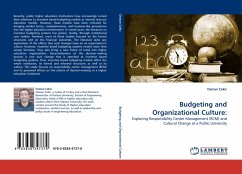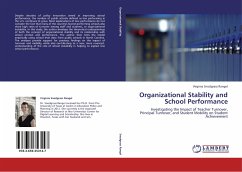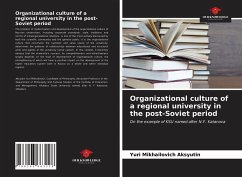
Budgeting and Organizational Culture:
Exploring Responsibility Center Management (RCM) and Cultural Change at a Public University
Versandkostenfrei!
Versandfertig in 6-10 Tagen
39,99 €
inkl. MwSt.

PAYBACK Punkte
20 °P sammeln!
Recently, public higher education institutions have increasingly turned their attention to incentive based budgeting models as internal resource allocation models. However, these models have been criticized for bringing market forces, competitiveness, and business-like perceptions into the higher education environment. In recent years, the literature on incentive budgeting systems has grown; mostly, through institutional case studies. However, most of these studies focused on the formal structures and on the financial outcomes. The literature lacks any exploration of the effects that such chan...
Recently, public higher education institutions have increasingly turned their attention to incentive based budgeting models as internal resource allocation models. However, these models have been criticized for bringing market forces, competitiveness, and business-like perceptions into the higher education environment. In recent years, the literature on incentive budgeting systems has grown; mostly, through institutional case studies. However, most of these studies focused on the formal structures and on the financial outcomes. The literature lacks any exploration of the effects that such changes have on an organization s culture. However, incentive based budgeting systems involve more than simply formulas. They also bring a new frame of mind into higher education organizations. Decentralization of the decision-making process is one such change that is attached to incentive based budgeting systems. Thus, incentive based budgeting models affect the whole institution, its formal and informal structures as well as its culture. This study focuses on responsibility center management (RCM) and its perceived effects on the culture of decision-making at a higher education institution.












